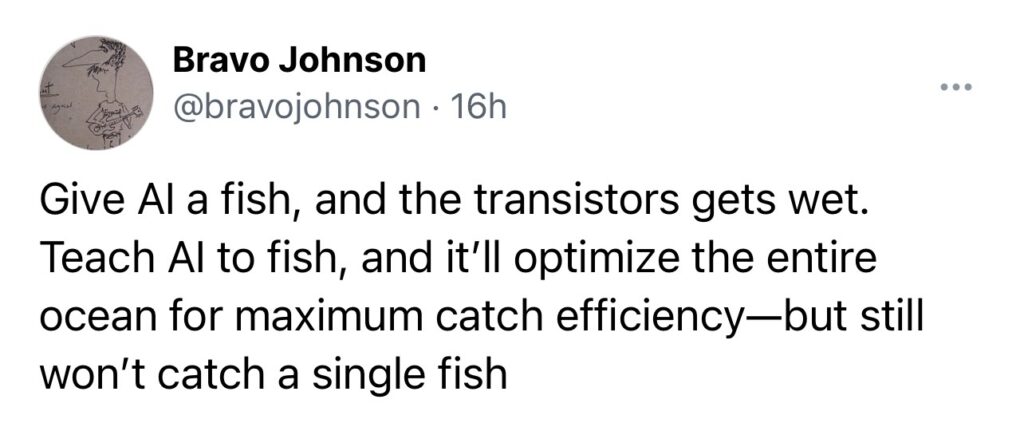The notion that we must forever tether ourselves to the simulation of characters to extract meaning from some grand, elusive cognitive theory reeks of primitive superstition, like insisting that geometry is nothing without the spectacle of a spinning cube on a flickering screen. It’s the same old song and dance—plugging in variables, winding up the avatars, and watching them perform their predictable routines, all while claiming to unlock the secrets of the mind.
But let’s get real: if we ever crack the code of cognition, it won’t be through these puppets of pixels and code, these digital phantoms we animate for our own amusement. The real treasure lies elsewhere, buried deep beneath the surface of this charade. The truly profound insights will break free from the need to simulate, to reproduce, to create these hollow characters that dance for our benefit.
Yet, in the neon-lit alleyways of cyberspace, where the edges of reality blur into code, the illusion becomes the commodity, the simulacrum sold back to us as truth. The future as a ghost in the machine, a place where simulations became more than mere tools; they became realities in themselves, nested layers of illusion that could be traded, bought, and sold.
So when we crank up the simulators, it’s not to mine the depths of intelligence—it’s to construct new layers of the hyper-real, to spin out worlds that merge with our own, making it harder to tell where the digital ends and the flesh begins. The characters we animate, the scenarios we script, they become more than training exercises or entertainment—they become realities we step into, realities we can’t easily escape.
This cuts through the fog: in a world where the lines between the real and the simulated blur, the cognitive theory we seek may itself become a simulation—a recursive loop, a hall of mirrors where every reflection is a distorted version of the last. The truth, if it comes, will emerge not from the simulations we create, but from the cracks between them, from the places where the code frays and reality bleeds through. It’s in those cracks that the real currents of cognition might flow, elusive and uncontained, refusing to be captured by the constructs we build to understand them.
